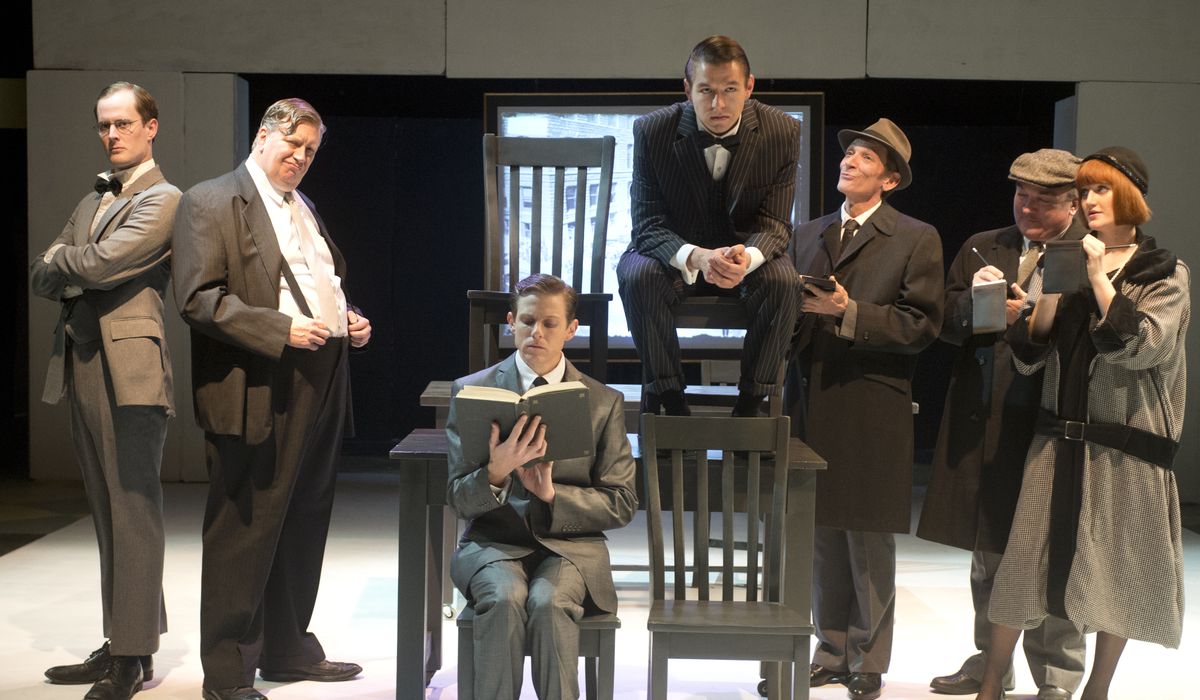‘Never the Sinner’ at Interplayers a riveting look at murder

Logan’s interpretation, which was written while he was a student at Northwestern University, is being performed at Interplayers Theatre beginning tonight, and director Ken Urso says that it sticks more closely to the details of the actual case than either “Rope” or “Compulsion.”
“I think Logan is the one who does it the most realistically,” Urso said. “He was the most honest, the most simple. A lot of the dialogue is from the court documents, so things that were actually said.”
The case commanded worldwide attention in 1924, when 19-year-old Nathan Leopold and 18-year-old Richard Loeb, obsessed with Friedrich Nietzsche’s Übermensch theory, attempted to commit the perfect murder. They impulsively killed a 14-year-old named Bobby Franks and dumped the body in a culvert, under the assumption that they would never be suspected.
“They were wealthy and good-looking and super intelligent, and they thought they could get away with anything,” Urso said.
But Leopold’s eyeglasses were found near Franks’ body, and the two young men eventually confessed to the killing. “Never the Sinner” alternates between scenes set on the day of the crime and in the courthouse during Leopold and Loeb’s arraignment, when their cantankerous defense attorney Clarence Darrow delivered a legendary 12-hour closing argument that helped his clients escape the death penalty.
“Most of Darrow’s words are right from the court transcripts, so it’s dead on,” Urso said.
Although the show follows historical fact (with Logan taking a few dramatic liberties here and there), Urso, who has directed the play before, says that he’s constantly readjusting his feelings toward Leopold and Loeb as characters.
“It changes almost every day that I’m working on it. I’ll hear a new line, and I’ll go, ‘That’s absolutely true,’ and I’ll side with Crowe, who’s the prosecution,” he said. “But then the next day and I’m in a different mood, and I’ll hear a line Darrow says, ‘You’ll hate the sin, but never the sinner,’ and I’ll think, ‘Yes, I get that.’ ”
Logan doesn’t sympathize with Leopold and Loeb, nor does he vilify him, and the power of “Never the Sinner” is in its moral ambiguity.
“I want the audience to understand the minds of these two boys, how their circumstances, their childhoods, the time period really made them who they were,” Urso said. “If we’re honest about what’s going on, people can make their own judgments and see how they feel and they react.”